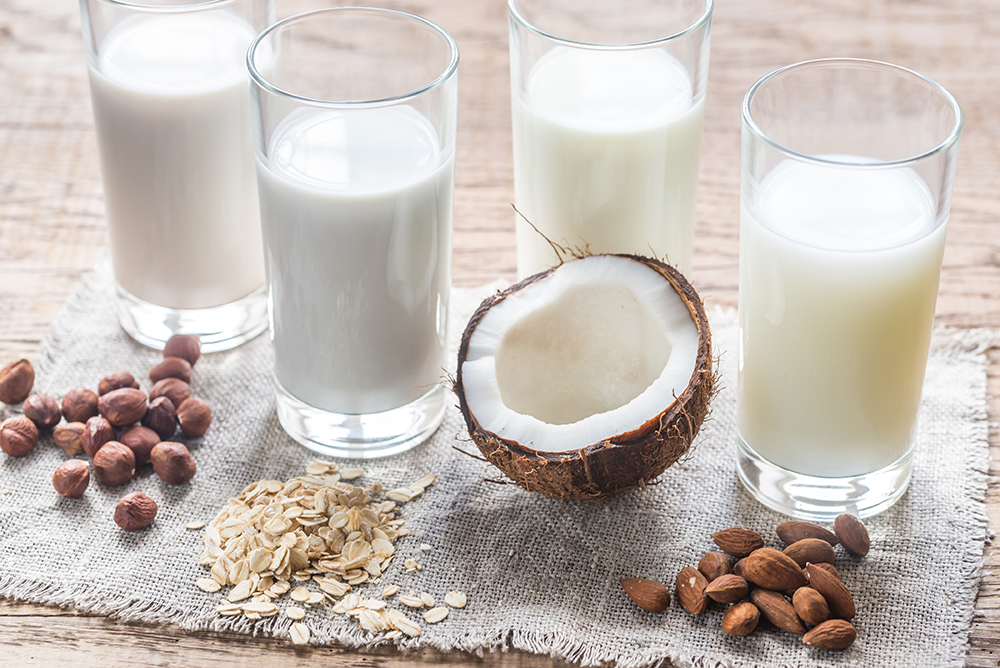Alternatives to Dairy Products

Dairy products have long been linked to Parkinson’s Disease. Laurie Mischley, ND PhD MPH, summarised the research evidence on the association of dairy consumption and Parkinson’s in her book, Natural Therapies for Parkinson’s Disease. The book clarifies the position that three studies concluded that consumption of dairy is associated with an increased risk of developing symptoms of Parkinson’s Disease and more specifically that 3-6 servings of dairy per day results in a 60-80% increased risk.
There are many reasons why dairy products makes Parkinson’s symptoms worse. One is that pesticides are often found in dairy products. Pesticides cause the symptoms of Parkinson’s. Another reason is that dairy is highly acidic. Each time you eat diary products, lactose sugar is fermented which results in the production of lactic acid. The body does need acids to breakdown and digest food, but too much can do great harm to the tissues and organs. Too much acid burns away the cellular structure of the body, reduces life span and creates disease. Finally, as a result of excess acid in the body, the body responds by coating the intestinal track with mucus. An accumulation of thick mucus in the lower bowel results in increased fecal matter condensed with mucus. This brings about digestive problems such as constipation, gas, bloating, ulcers, nausea and irritation of the intestinal wall. Needless to say, such accumulations of mucus in the intestinal walls make the ideal home for unfriendly bacteria and parasites. Our body is a mass of intricate neural networks. Key connections to every major organ in the body, including the brain are found in the gut and so we are jeopardising these connections which are very much needed for people with Parkinson’s.
But what about calcium and vitamin D you may shout? Getting enough calcium from dairy products is important for other health reasons such as maintaining bone health, vitamins D and minerals. People with Parkinson’s are at risk of falls, which can lead to fractures and broken bones. It is therefore particularly important to maintain strong bones and bone mass. Vitamin D plays a crucial role in the regulation of calcium, contributes to skeletal health, protects against muscle weakness and also contributes to the regulation of antioxidative stress. Vitamin D deficiencies can lead to Parkinson’s Disease and depression.
There are many alternatives to dairy products that you can incorporate into your daily diet.These alternatives are tasty, filled with nutrients such as calcium, vitamin D, magnesium and iron.
What should I eat and drink?
Tips:
You can add Live Culture Bacteria products to your daily life to improve your gut health. These can be homemade drinks milk alternatives or water such as Kefir drinks and Kombucha drinks. You can also take a daily probiotic such as VSL3 Supplement, which is full of over 450 billion good bacteria to help to repair your gut.




